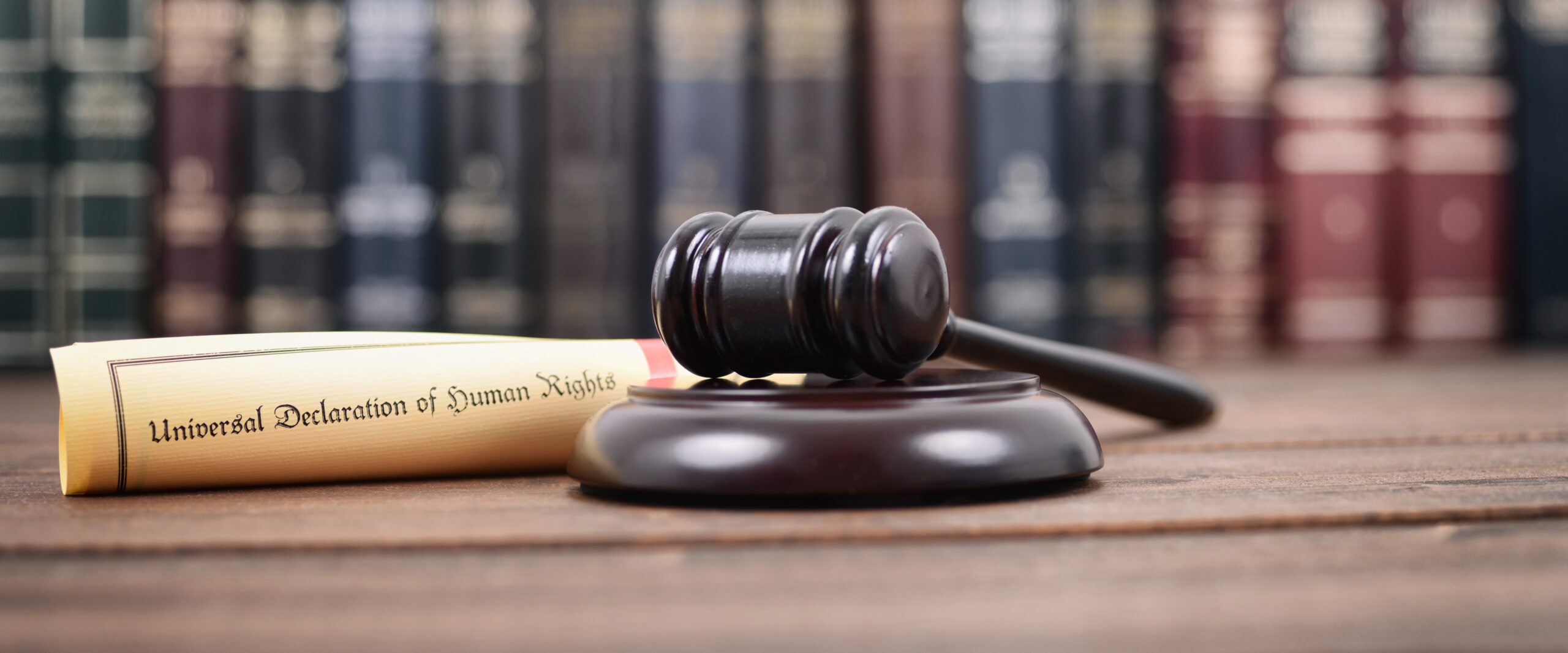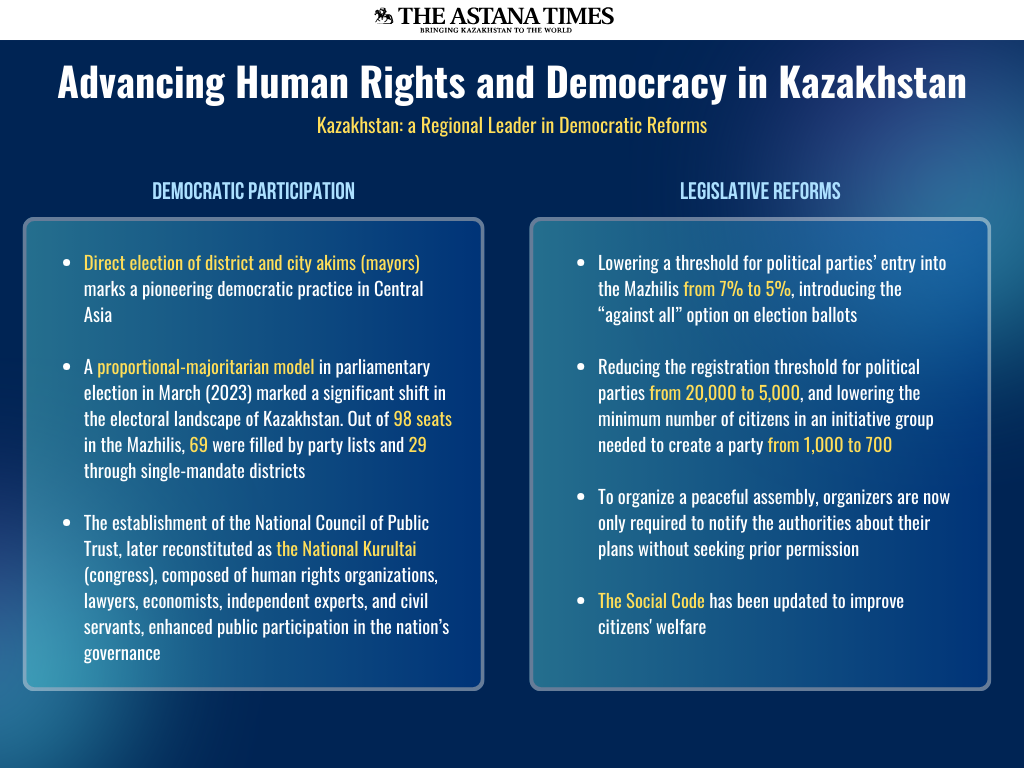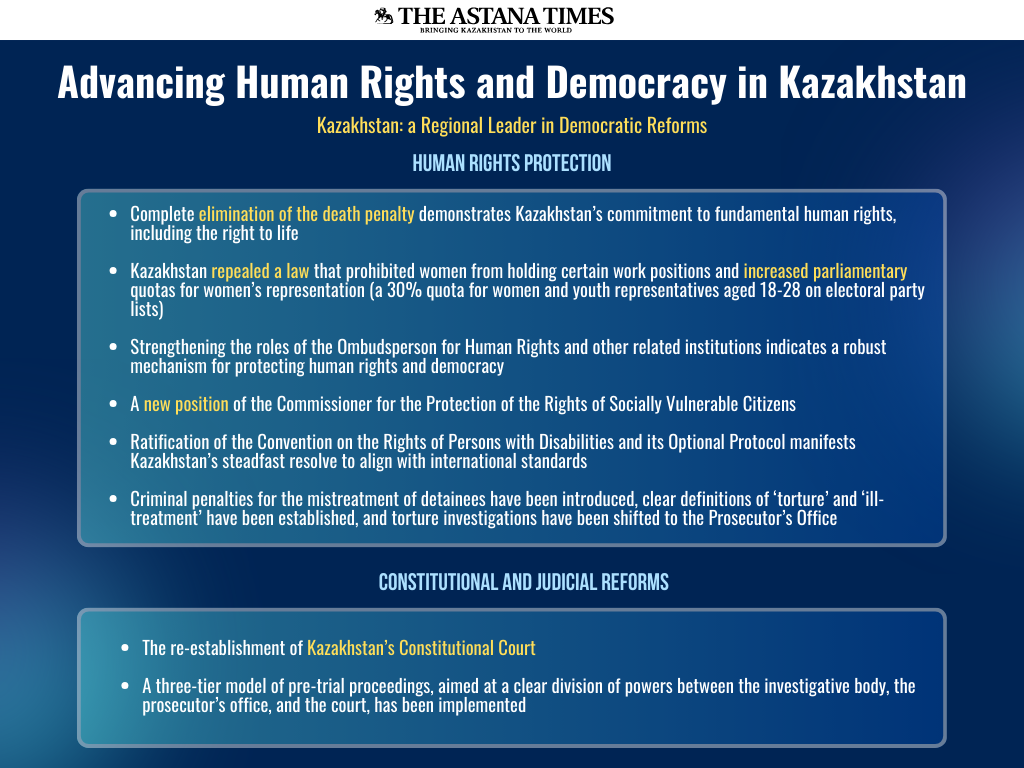ASTANA – Kazakhstan is celebrating the 75th anniversary of the Universal Declaration of Human Rights (UDHR) on Dec. 10, adopted by the United Nations General Assembly in 1948. Recognized as a fundamental document, the UDHR guarantees the rights and dignity of every individual.

Photo credit: Shutterstock
The commemoration serves as a reminder of Kazakhstan’s commitment to the principles outlined in the declaration. The government’s efforts to promote human rights practices, establish legal frameworks, and foster an inclusive society are underscored. Additionally, it provides a platform for civil society organizations, activists, and individuals to address challenges and advocate for human rights issues.
This occasion also prompts reflection on the progress made and emphasizes the ongoing commitment to building a more inclusive and equitable world.
Kazakhstan’s democratic strides
Kazakhstan is taking significant steps towards implementing democratic principles and protecting human rights, emerging as a regional leader in these reforms.

Notable strides include last year’s proposal by President Kassym-Jomart Tokayev for significant political reforms. These reforms, ratified through a national referendum, aimed to decentralize the political system and enhance the checks and balances between the branches of state power.
Key reforms included the redistribution of powers from the President to the Parliament, simplifying political party registration, and encouraging the participation of independent candidates in elections. The diverse candidate pool in recent parliamentary elections to the Mazhilis (the lower chamber of Parliament) reflected Kazakhstan’s commitment to inclusive governance, with seven parties competing for seats.
The reforms also encompassed increased participation of citizens in state governance and the protection of human rights. Among key objectives are the decentralization and distribution of power across the country, strengthening the rule of law, and ensuring equal opportunities for every citizen.
Kazakhstan’s human rights commitment
In recent years, Kazakhstan has demonstrated a steadfast commitment to upholding the principles of human rights. The country has recognized the importance of aligning domestic policies with international standards, fostering an environment where fundamental rights are respected and protected.

Kazakhstan has prioritized human rights through comprehensive plans and measures, addressing areas such as collaboration with United Nations organizations, maintaining public order, ensuring freedom of association and expression, protecting the rights of individuals with disabilities, and preventing torture. The abolition of the death penalty and legislative efforts to combat torture underscore Kazakhstan’s dedication to fundamental human rights.
Advancements in gender equality, such as repealing restrictive laws and increasing female parliamentary representation, further highlight the country’s progress.
Kazakhstan has also strengthened the roles of the Ombudsperson for Human Rights and related institutions, indicating a robust mechanism for protecting human rights and democracy.
Other key initiatives
Kazakhstan has implemented constitutional and judicial reforms, including re-establishing the Constitutional Court and introducing a three-tier model of pre-trial proceedings.
Recognizing the crucial role of media and civil society, the country has implemented reforms to empower citizens. It made changes to media laws, including the decriminalization of defamation, aligning with global trends. These reforms create a safer digital space and promote freedom of expression.
The country continues to collaborate with global partners, sharing insights and experiences to promote democratic values, human rights, and the rule of law.
